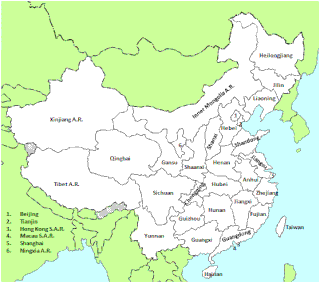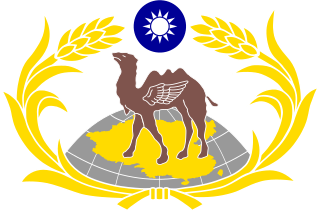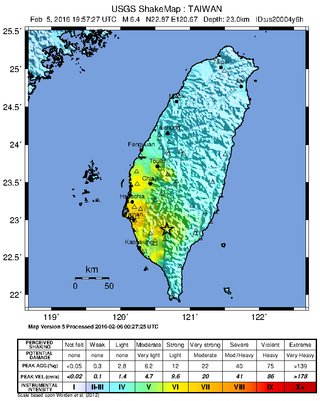
Taiwan Semiconductor Manufacturing Company Limited is a Taiwanese multinational semiconductor contract manufacturing and design company. It is the world's second-most valuable semiconductor company, the world's largest dedicated independent ("pure-play") semiconductor foundry, and its country's largest company, with headquarters and main operations located in the Hsinchu Science Park in Hsinchu, Taiwan. The majority of TSMC is owned by foreign investors, and the central government of Taiwan is the largest shareholder. In 2023, the company was ranked 44th in the Forbes Global 2000.

United Microelectronics Corporation is a Taiwanese company based in Hsinchu, Taiwan. It was founded as Taiwan's first semiconductor company in 1980 as a spin-off of the government-sponsored Industrial Technology Research Institute (ITRI).

Siltronic AG is a manufacturer of wafers made of hyperpure silicon, the basis for modern micro- and nanotechnology. The Munich-based company is one of the world's leading manufacturers of wafers for the semiconductor industry.

Powerchip Semiconductor Manufacturing Corporation (PSMC) manufactures and sells semiconductor products, in particular memory chips and other integrated circuits. As of 2023, the company was the 8th largest semiconductor foundry in the world with four 12 inch and two 8 inch wafer labs. The company offers foundry services as well as design, manufacturing and test services. It was formerly known as Powerchip Semiconductor Corp. and changed its name in June 2010. Powerchip Technology Corporation was founded in 1994 and is headquartered in Hsinchu, Taiwan.

Agriculture is one of the main industries in Taiwan. It contributes to the food security, rural development and conservation of Taiwan. Around 24% of Taiwan's land is used for farming.

The Economic Cooperation Framework Agreement (ECFA) is a free trade agreement (FTA) between the governments of the People's Republic of China and the Republic of China, that aims to reduce tariffs and commercial barriers between the two sides, as well as improve cross-strait relations.
Ting Hsin International Group is a Taiwanese-owned corporate group established in 1958. It owns various food brands such as the instant noodle maker Master Kong, Wei-Chuan Food Corporation and Dicos.

Vanguard International Semiconductor Corporation (VIS) is a Taiwanese specialized IC foundry service provider, founded in December 1994 in Hsinchu Science Park by Morris Chang. In March 1998, VIS became a listed company on the Taiwan Over-The-Counter Stock Exchange (OTC) with the main shareholders TSMC, National Development Fund, Executive Yuan and other institutional investors.

Wang Ju-hsuan, also known as Jennifer Wang, is a Taiwanese lawyer and politician. She was the Minister of the Council of Labor Affairs from 2008 to 2012. In 2015, Wang was selected as Eric Chu's running mate on the Kuomintang (KMT) ticket for the 2016 Republic of China presidential election, which they eventually lost.

The Armaments Bureau is a affiliated authority of the Ministry of National Defense of Taiwan.
Events from the year 2014 in Taiwan, Republic of China. This year is numbered Minguo 103 according to the official Republic of China calendar.

The New Power Party (NPP) is a political party in Taiwan formed in early 2015. The party emerged from the Sunflower Student Movement in 2014, and advocates for universal human rights, civil and political liberties, as well as Taiwan independence/nationalism. The party is a part of the political phenomenon known as the "Third Force" (第三勢力), in which new political parties, unaligned with traditional Pan-Green or Pan-Blue Coalitions, sought to provide an alternative in Taiwanese politics. Nevertheless, the NPP's policies are very much aligned with and closely match the Pan-Green camp; thus the NPP cooperated with the Democratic Progressive Party (DPP) against the Kuomintang (KMT) in the 2016 elections, going as far as not to run in traditional KMT strongholds to avoid competition with the DPP. The party works in tandem with a perceived generational shift towards Taiwan-centrism as the new socio-cultural norm.

At 03:57 local time on 6 February 2016, an earthquake with a moment magnitude of 6.4 struck 28 km (17 mi) northeast of Pingtung City in southern Taiwan, in the Meinong District of Kaohsiung. The earthquake struck at a depth of around 23 km (14 mi). Its comparatively shallow depth caused more intense reverberations on the surface. The earthquake had a maximum intensity of VII on the Mercalli intensity scale, causing widespread damage and 116 deaths. Almost all of the deaths were caused by a collapsed residential building, named Weiguan Jinlong in Yongkang District, while two other people were killed in Gueiren District. Sixty-eight aftershocks have occurred. The earthquake was the deadliest earthquake in Taiwan since the 1999 Jiji earthquake.
Delta Electronics, Inc. is a Taiwanese electronics manufacturing company. Its headquarters are in Neihu, Taipei. It is known for its DC industrial and computer fans and for switching power supplies. The company operates approximately 200 facilities worldwide, including manufacturing, sales, and R&D centers.

The maritime industries of Taiwan are a large part of Taiwan's economy. Industries of particular importance are shipbuilding, boat building, maritime transport, aquaculture, mariculture, commercial fishing, seafood processing, offshore wind power and various forms of tourism. Deep sea mining, especially of dormant hydrothermal vents, is also being considered for the future. In 2018 Taiwan was the fourth largest yacht building nation. Taiwan is home to a number of maritime museums and maritime colleges.

The defense industry of Taiwan is a strategically important sector and a significant employer. They primarily supply weapons and platforms to the Republic of China Armed Forces with few major weapons systems exported abroad. Taiwanese defense industry has produced fighter aircraft, missile systems, surface ships, radars, rocket artillery, armored vehicles, and small arms.
The semiconductor industry, including Integrated Circuit (IC) manufacturing, design, and packaging, forms a major part of Taiwan's IT industry. Due to its strong capabilities in OEM wafer manufacturing and a complete industry supply chain, Taiwan has been able to distinguish itself as a leading microchip manufacturer and dominate the global marketplace. Taiwan’s semiconductor sector accounted for US$115 billion, around 20 percent of the global semiconductor industry. In sectors such as foundry operations, Taiwanese companies account for 50 percent of the world market, with Taiwan Semiconductor Manufacturing Company (TSMC) the biggest player in the foundry market.

The Taiwan Agricultural Research institute is a research institute in Taiwan under the auspices of the Ministry of Agriculture.

Founded in 2006, ProLogium Technology is a Taiwanese solid-state battery developer and manufacturer.













